Congratulations to the Fall 2024 Early Career Researcher in Cancer Awardees!
As part of its commitment to capacity building in the Canadian cancer research landscape, the Institute of Cancer Research (ICR) established the Early Career Researcher in Cancer Award in 2019 to recognize early career research excellence and help support awardees' research programs. This award is given to early career researchers with the highest-ranked applications in the Project Grant competition that fall within ICR's mandate. ICR congratulates the recipients of the Fall 2024 Early Career Researcher Award in Cancer!
Learn more about the awardees:
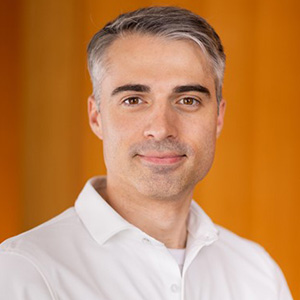
Dr. Landon J. Edgar, University of Toronto
Dr. Landon Edgar is a chemical immunologist with expertise in single cell analysis technologies. His interdisciplinary team deploys methods from organic chemistry, biochemistry, and cell engineering to study and manipulate the immune system, with a focus on the roles of carbohydrates in health and disease. The Edgar Lab's goal is to program synthetic immune responses by engineering the interfaces through which immune cells communicate. Their work is providing the foundational knowledge required to design next-generation therapeutics.
Project funded: Chemical technologies for controlling T cell glycosylation in health and disease
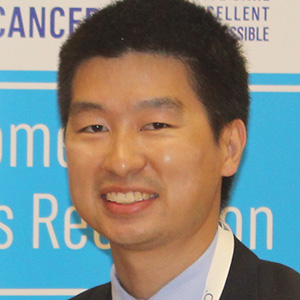
Dr. Lawson Eng, University Health Network
Dr. Lawson Eng is a medical oncologist at the Princess Margaret Cancer Centre and Assistant Professor in the Department of Medicine at the University of Toronto. His research interests are in cancer survivorship and supportive care with a focus on health behaviours (in particular, tobacco control), patient-reported outcomes, real-world population-level data, and health services research, where he uses both patient and population-level data with a goal towards improving the care delivery for cancer survivors.
Project funded: Understanding the impact of age and frailty on immune checkpoint inhibitor (ICI) outcomes in cancer patients
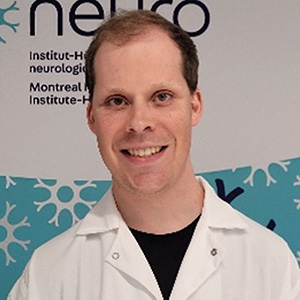
Dr. Jérôme Fortin, McGill University
Dr. Jérôme Fortin obtained his PhD from McGill University in 2014. He then pursued post-doctoral training in cancer biology at the Princess Margaret Cancer Centre, where he developed a strong interest in brain tumours and epigenetic alterations as cancer drivers. In 2023, Dr. Fortin joined the Department of Neurology and Neurosurgery as an Assistant Professor at McGill University, leading a laboratory focused on brain cancers.
Project funded: Characterizing and improving new treatments for IDH-mutant diffuse gliomas
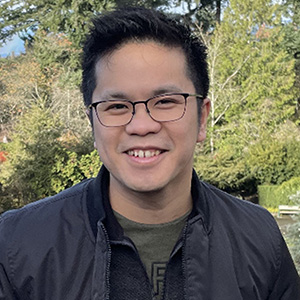
Dr. Dheva Setiaputra, Simon Fraser University
Dr. Dheva Setiaputra is an Assistant Professor at the Department of Molecular Biology and Biochemistry at Simon Fraser University. He specializes in uncovering the mechanisms underlying DNA repair processes in the context of genotoxic cancer therapy. The Setiaputra Laboratory is a multidisciplinary program integrating biochemistry, cell biology, and genomics approaches to explore new avenues in cancer therapy that leverages the inherent genome instability of tumour cells.
Project funded: Mechanisms of DNA double-strand break repair by 53BP1-RIF1-shieldin
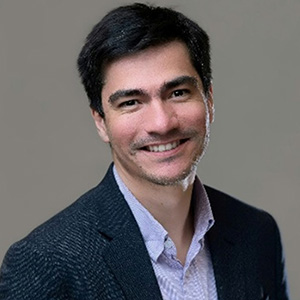
Dr. Carlos F. Uribe, University of British Columbia
Dr. Carlos Uribe, PhD, MCCPM, is a certified nuclear medicine physicist at BC Cancer in Vancouver and faculty at the University of British Columbia. He leads the Provincial Clinical Molecular Imaging and Therapy Physics Program, focusing on quantitative molecular imaging and theranostics. His research advances radiopharmaceutical therapies through dosimetry, clinical trials, and novel imaging techniques. Dr. Uribe is actively involved in international societies and initiatives and has received multiple recognitions from external organizations, including the CIHR-ICR Early Career Researcher Award in Cancer.
Project funded: Precision radiopharmaceutical therapies with theranostic digital twins
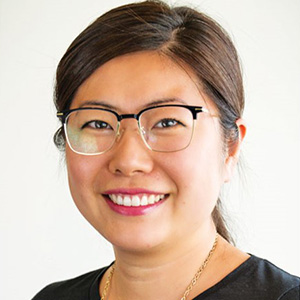
Dr. Carrie Ye, University of Alberta
Dr. Carrie Ye is a clinician researcher at the University of Alberta, specializing in the epidemiology of bone and joint health in individuals with cancer. She is a rheumatologist and runs the Northern Alberta Osteoporosis Program, as well as the Rheumatology in Immuno-Oncology Clinic. Her research focuses on understanding the musculoskeletal toxicities of immune checkpoint inhibitors by leveraging and linking data from the Canadian Research Group of Rheumatology in Immuno-Oncology (CanRIO) to administrative health data.
Project funded: Gaining insight into immune checkpoint inhibitor associated inflammatory arthritis using administrative health data
- Date modified: